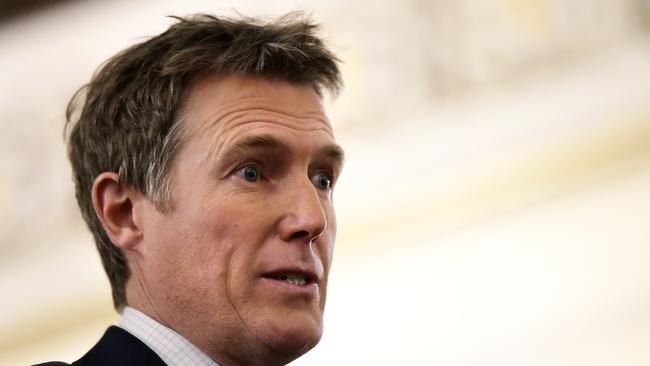Doctors fear state law may veto their objections
The Morrison government’s proposed religious discrimination bill makes conscientious objection primarily a state matter.

Religious doctors in Victoria and Queensland may still be compelled to refer a patient for an abortion under the Morrison government’s proposed religious discrimination bill if they conscientiously object to the procedure, triggering concerns among some legal experts.
The exposure draft bill, released yesterday by Attorney-General Christian Porter, is designed to ensure health practitioners do not have to participate in an abortion or euthanasia, or prescribe contraception to a patient, if they are opposed on religious grounds.
But the legislation does not override state law.
In Victoria, a practitioner with a conscientious objection to abortion is obliged to refer a woman to another registered health practitioner they know does not conscientiously object.
There is a similar law in Queensland, and the NSW parliament is considering introducing its own version of the law via the Berejiklian government’s controversial abortion bill.
Michael Quinlan, dean of the school of law at the University of Notre Dame’s Sydney campus, said this was problematic and he disagreed with the proposition that conscientious objection was primarily a state matter.
“It’s very important for our health practitioners to have the right to act or refuse to act in accordance with their conscience,” Professor Quinlan said.
“We want our health practitioners to … provide advice based on their conscience.”
“The intention of this bill is good. It’s good it’s an exposure draft because as it’s presently drafted that intention is not fulfilled. Religious freedom is an internationally recognised human right. It should be at least applied nationally in a consistent manner, which this bill fails to do.”
Under the bill, a health practitioner must comply with their employer’s rules regardless of their religious belief to avoid an “unjustifiable adverse impact” on the employer or the health of a patient.
For example, a nurse would be required to assist in performing an abortion despite her religious objections in an emergency where the woman’s life was at risk if the procedure was not done.
A sole GP in a small rural community would also have to prescribe contraception so there is no “unjustifiable adverse impact” on the ability of the practice to provide medical services to that community, or on women who cannot access alternative healthcare without significant travel and cost.
Professor Quinlan noted participating in an abortion was considered a serious sin under Catholic Church cannon law and in doing so a person would exclude themselves from receiving communion and all of the other sacraments.
Mr Porter said the purpose of the section of the bill was to “bolster what usually occurs in the states”.
“It clarifies that … someone who wants a health practitioner to do something contrary to a state-based conscientious provision would not be acting reasonably,” he said.



